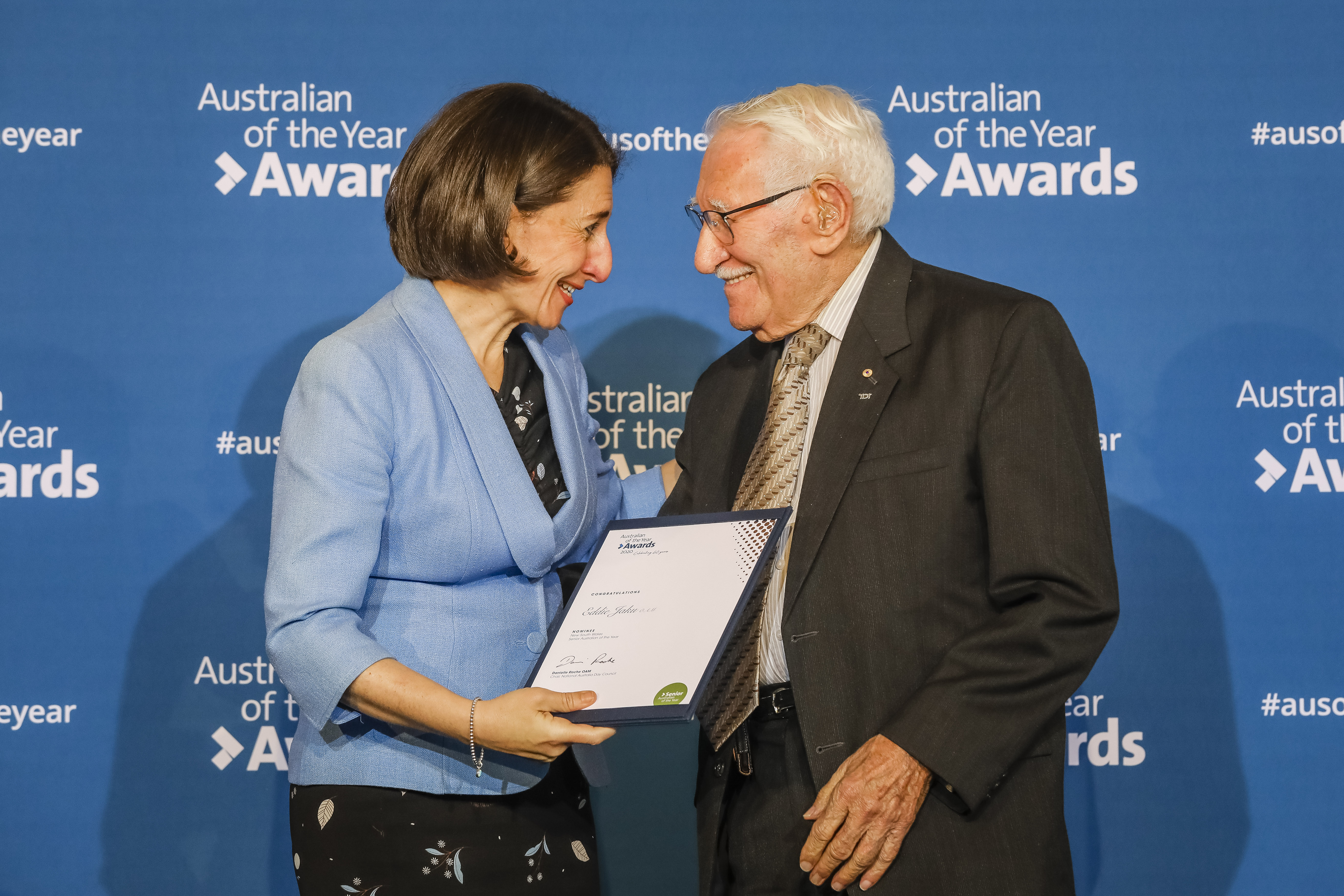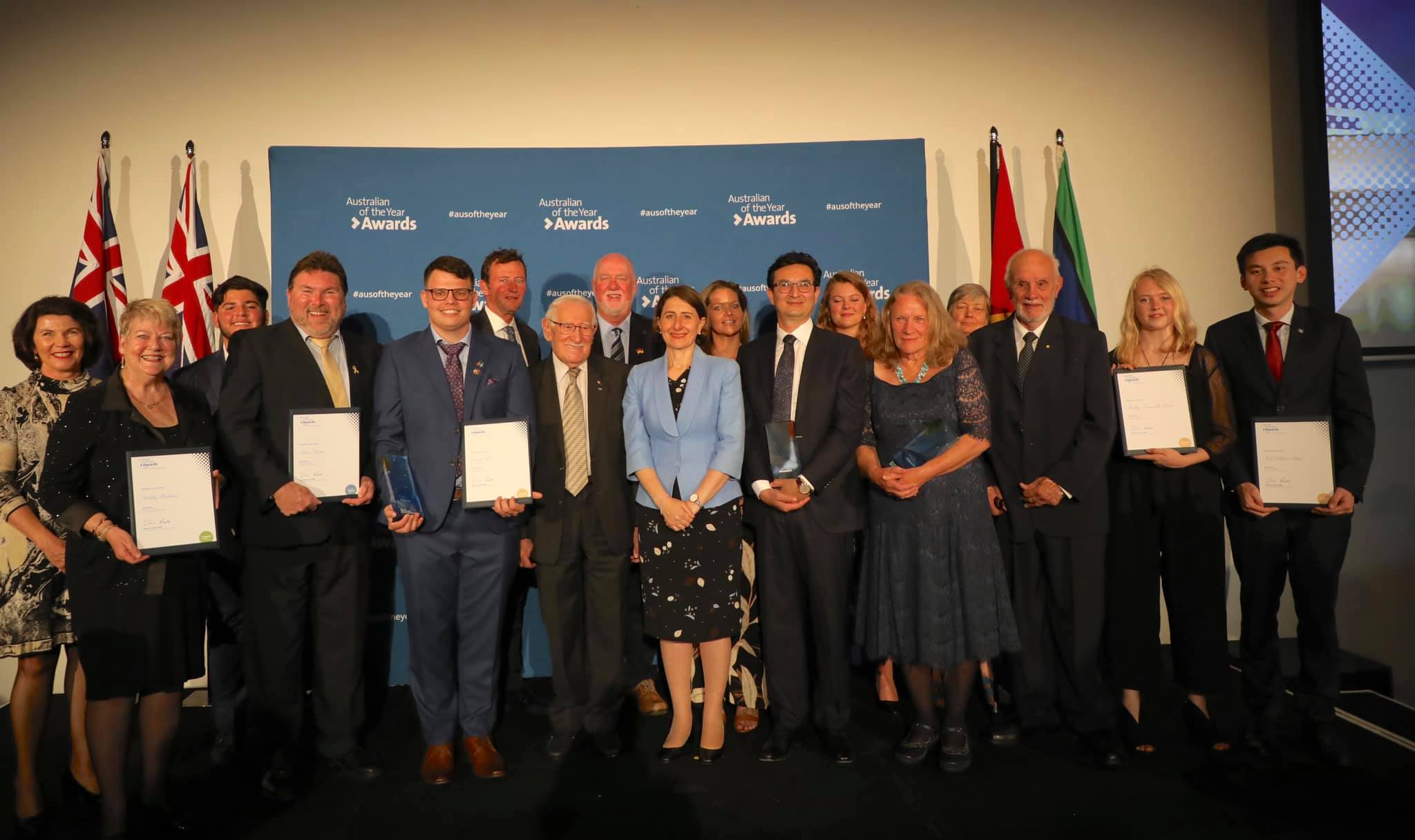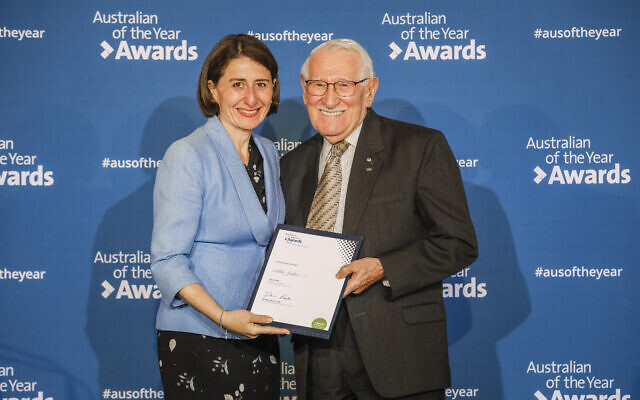Eddie, a happy nominee
Out of around 1000 nominees, Sydney Holocaust survivor Eddie Jaku was one of four finalists in the running this week to be named 2020 NSW Senior Australian of the Year.
“HAPPINESS doesn’t fall from the skies, it is in your hands,” Holocaust survivor and self-proclaimed “happiest man on earth” Eddie Jaku said in his TEDxSydney talk earlier this year.
“Tomorrow will come, but first enjoy today.”
The inspiring messages Jaku shares through his talks, and the meaningful contribution he makes towards mitigating hate, and building tolerance and understanding society-wide, led to the 99-year-old being nominated as the 2020 NSW Senior Australian of the Year.

Out of approximately 1000 nominees, Jaku was selected as a finalist along with three other seniors. He didn’t take out the coveted title of Senior of the Year, but “win or not win – it is not important, I have been recognised for the work I do”.
One of his key messages is to emit the word “hate” from our vocabulary.
“I teach children and adults not to hate – that is my first message,” said Jaku, who volunteers at the Sydney Jewish Museum. “You can say ‘I don’t like those people,’ but do not hate those people. Hate is the start of the biggest problems … If we don’t hate, we won’t fight. Humans have to behave like humans, not fight each other.”

He added, “Hate destroys your enemy and in the process, destroys yourself because you hate everything. You don’t know why but you do. It becomes built into your vocabulary. I don’t hate anyone, not even the Germans.”
Rather, Jaku said he feels happy if he “can make one miserable person smile”.
Born in Germany, Jaku lived out the horrors of the Holocaust in Buchenwald and Auschwitz. He escaped from both camps and after Auschwitz, remained in hiding until the war’s end.
Reflecting on the TEDx talk, he remembered, “TEDx was the utmost of my speeches because I have never spoken to 6000 people before … After I finished, there were 2000 people lining up in a hall just to shake hands or hug me. This was wonderful. This was my reward,” said Jaku.
Using past trauma to spread a hopeful message, Jaku is concerned about the future of Holocaust education when survivors like himself are no longer here.
“What will happen when all of us survivors have passed away?” he asked. “Will it fade out like everything else in history, or will it be remembered and will there be commemorations?”


comments